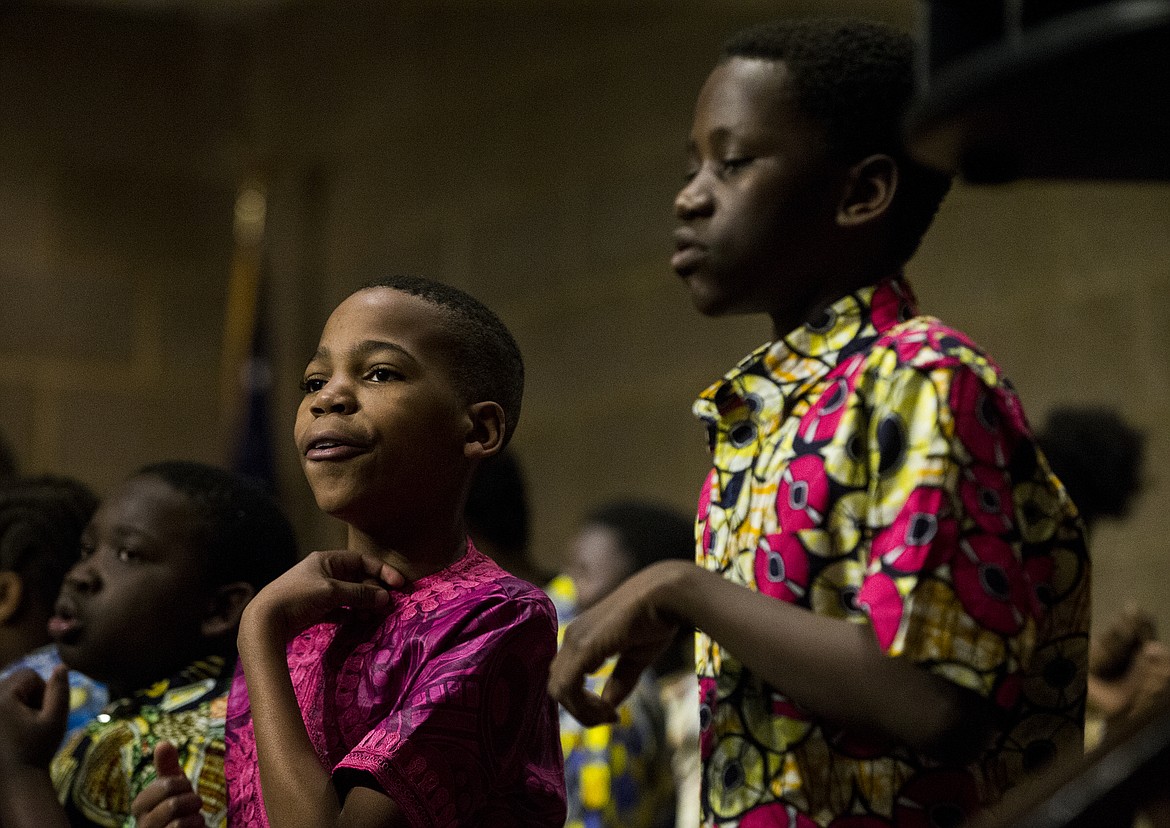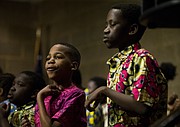Refugees detail long journeys to America
COEUR d’ALENE — Refugees from South Sudan and Bhutan spoke about their perilous journeys to America in an emotional and educational evening at the Coeur d’Alene Public Library Thursday.
The refugee awareness event — sponsored by social work students at Lewis-Clark State College and the Phi Alpha honor society — detailed the struggles that displace refugees from their homelands.
Jackson Lino, originally from South Sudan and now living in Spokane, said the crucial element to remember is our shared humanity.
“The most important thing to remember is that we’re all human beings,” Lino said.
Lino’s parents were killed by rebels when he was only 3 years old, and he spent the next several years of his life as a child slave.
“I was deemed as a non-human in my country,” Lino said. “I was a slave to the rebels.”
He arrived to Spokane 17 years ago at age 12. Lino said he was eternally grateful for how Americans have welcomed him.
“It doesn’t matter what color your skin is or what your beliefs are,” he said. “What matters is that I love you for who you are.”
Lino now works with World Relief Spokane, a settlement agency that helps transition refugees into the community.
According to Dr. Mark Finney, the director of World Relief, the agency helps place about 600 refugees each year in homes, jobs and schools.
In fact, Finney said every school at every level in the Spokane School District has at least one refugee student.
Lino also directs the Neema Youth Choir, a group of 14 refugee youths from the African nations of Burundi, Congo, Rwanda, Tanzania and Uganda.
Neema — which means “grace” in Swahili — performed three songs during the 90-minute program attended by roughly 100 people.
In addition to Lino, Pingala Dhital, originally of Bhutan and now living in Spokane, shared her refugee story.
Dhital grew up in southern Bhutan, a small Asian country located between China and India. When she was 16 the government enacted the “One People Policy” with the aim of driving out people from her region.
“The only thing we could do is run away as fast as we can,” Dhital said.
After nine months in India, Dhital and her fellow southern Bhutanese villagers were relocated to a refugee camp in Nepal.
There, Dhital married her husband and gave birth to her two children. It was her children’s well-being that inspired her to come to the United States.
“Even in a refugee camp, no one can stop people from dreaming,” Dhital said. “I felt like I had a responsibility to give my kids a better future.”
In February 2008, after 18 years of fleeing, Dhital and her family arrived to Spokane International Airport. They were greeted by a group from World Relief there at midnight.
“I was so thrilled to see these strangers,” Dhital said. “Everyone else pushed us away, but America welcomed us.”
Dhital became a citizen in 2013 and now works for World Relief. Her son works as a civil engineer, and her daughter is currently attending college. Their success is not uncommon among refugees.
Finney cited a study conducted by the Trump administration last year that found refugees added $63 billion to the national economy from 2005 to 2015 on top of the cost to bring them to America.
Refugees are defined by the United Nations as people who are forced to flee their home country because of political, religious, racial, or other forms of persecution and cannot safely return.
Finney said there are currently 22.5 million refugees worldwide, the highest number ever recorded.
Dhital said she was grateful for the love and support she had received from Americans and encouraged audience members to continue spreading love.
“I truly believe,” she said, “that we can change the world by loving each other.”



